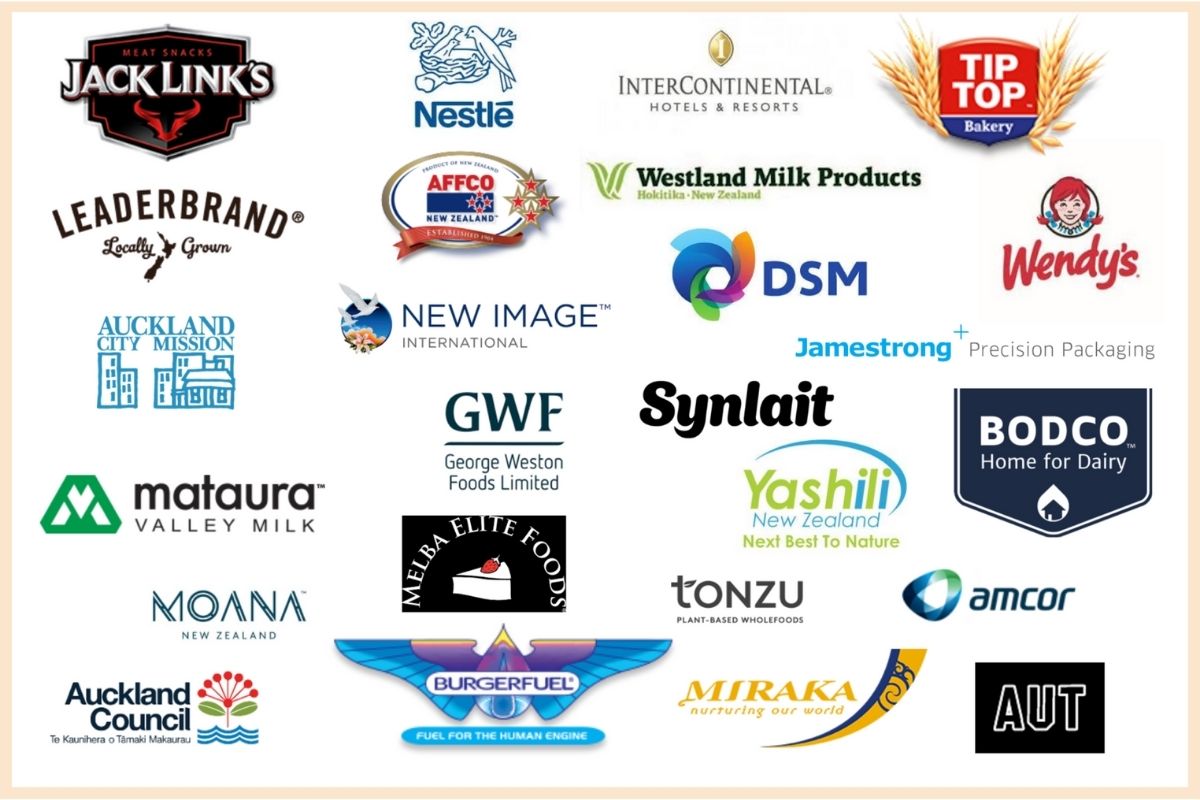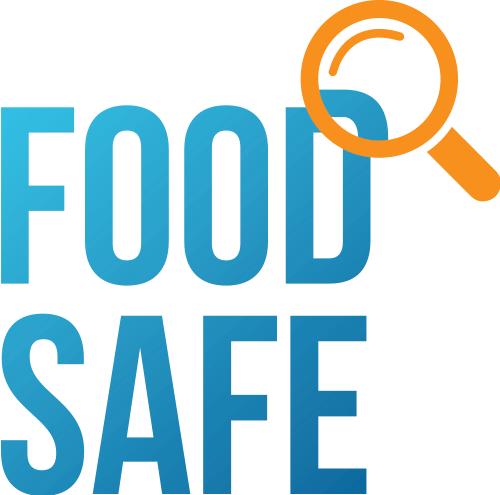Food Safe’s Advanced Auditing Course is suitable for Ministry For Primary Industries (MPI) Verifiers, EHOs, Lead Auditors, Healthcare Auditors, QA officers, team leaders, supervisors, managers, and staff interested in further developing their skills and includes Unit Standards 8084, 8085, 8086.
Course Cost: POA
About our Advanced Lead Food Safety Auditor Training Course
Course Duration: 5 days (40+ hours)
Training delivered by: Qualified ISO 22000 & 9001 Lead Food Safety Auditor
Provider Quality Assurance: Category 1 NZQA PTE
Meets:
- FSSC 22000 Internal auditor training requirements
- MPI requirements for verifiers and food safety auditors
- ISO 17020 & 17025 Auditor & certification requirements (e.g., IANZ & JAS-ANZ)
- ISO 22000 & 9001 standard requirements
- BRCGS, SQF, and Global GAP certification requirements
Course overview:
- Competency-based qualifications (22 NZQA credits; Level 3-6 Skills)
- Provides external auditors objective evidence of competency and evidence of skill level
- Covers all aspects of risk management and verification criteria including Current GMP, HACCP, RMPs, FCP, NP 1-3, FSP, & GMP
- Includes VADE operating model and relationships
- Aspects of allergen management
The Advanced Auditor Training Course offered by Food Safe includes the following NZQA Unit Standards Options:
The generic unit standards (8084, 8085 & 8086) are customised to suit:
- Food companies
- Laboratories
- Verification agencies
- Audit companies and auditors
- Environmental health officers (city and regional councils)
- The Ministry for Primary Industries
- Defence Force, Iwi, Government and private agencies.
- Pharmaceutical & Nutraceutical companies
- Healthcare
- Plus more!
We train and assess these units, which sit as a permanent record on the NZQA website against learners’ record of learning. Please note: not all providers can do both of these.
- Unit 8084: Audit quality management systems for compliance with quality standards. NZQA Level 6; Credits 14
- Unit 8085: Demonstrate knowledge of quality and its management in business contexts. NZQA Level 3; Credits 4.
- 8086: Demonstrate knowledge required for quality auditing. NZQA Level 4; Credit 4.
Advanced Lead Auditing Training Course Content
- Preparation for quality audits: Fundamentals of quality and its management
- Supply chain relationships in quality
- Models of Quality Management Systems: ISO standards (ISO 22000, ISO 9001, ISO 14000, ISO 17020, ISO 17025) – Where applicable to learner
- Learn by doing:
- Audit process
- Entry meeting
- Auditing techniques, roles, and types
- Technical aspects of auditing
- Effective audit methods
- Contingencies affecting validity
- Risk minimization (Root Cause Analysis RCA and NC)
- Interpersonal aspects of auditing
- Audit requirements are completed
- Exit meeting
- Audit reports generated from the three mock audit exercises above allow for:
-
- Technical review by the central function, including addressing the non-conformities resulting from the internal audit. (Meets FSSC 22000 internal auditor training requirement)
- Annual performance monitoring and calibration. (Meets FSSC 22000 version 6 internal audit requirement)
-
Practically carrying out 3 mock audit exercises (customized to learner situations)
- Example 1: GFSI Food Safety Culture
- Example 2: Aspect of ISO 22000 or ISO 9001 or ISO 17020
- Example 3: Codex Code of Practice customised to learners product/service
- All mock audit exercises to ISO 19011 Standard (guidelines for auditing management systems)
- Additional knowledge (if and where applicable) included:
- Codex Guidelines
- Good Operating Practices (GOP)
- Food Act 2014
- Food Regulations 2015
- Food Notices 2015
- Animals Products Act
- Risk Management Programmes (RMP)
- Export notices
- Halal notices
- Food Standards Australia & New Zealand
- Drinking-water standards
- Interface with other relevant legislation & acts
Learners are required to do some self-learning, and we will advise once the courses are confirmed.
Advanced lead auditor skills are based on and assessed against the following NZQA standards:
Unit 8084: Audit quality management systems for compliance with quality standards. NZQA Level 6; Credits 14
- Preparation for quality audits:
- Audit plan, agreed scope, impacts from previous audit outcomes, and working documents.
- Technical aspects of the audit are carried out to enable an effective audit:
- Opening meetings, recognition of variances and variations, recording opportunities for improvement, management of contingencies, safeguarding the audit’s integrity & closing meetings.
- Interpersonal aspects of the audit:
- Collaboration, communication, and negotiation with all stakeholders
- Audit requirements are completed:
- Reporting, negotiating, facilitating & verifying corrective actions.
Unit 8085: Demonstrate knowledge of quality and its management in business contexts. NZQA Level 3; Credits 4.
- Fundamentals of quality and its management:
- Including the degree of excellence, principles, and concepts.
- Supply chain relationships in quality:
- Support, meeting customer requirements, delegation, and sharing of authority and responsibility.
- Quality management systems:
- Systematic approach, documentation of procedures, standards, specifications, review & audit, measurement & evaluation.
- Models of Quality Management Systems:
- ISO standards (ISO 9001:2018, ISO 22000, ISO 14000, ISO 17020/5)
- Customized additional options include: RMP, FSSC 22000, BRCGS, SQF, Global Gap & WSE
- Total Quality Management (TQM),
- New Zealand Business Excellence Awards (NZBEA) criteria.
- ISO standards (ISO 9001:2018, ISO 22000, ISO 14000, ISO 17020/5)
Unit 8086: Demonstrate knowledge required for quality auditing. NZQA Level 4; Credits 4.
- Purpose and benefits of Quality Auditing:
- Statutory requirements, identification of risks, identification of areas for improvement, establishment and improvement of safe work practices and environment.
- Steps of the quality auditing process:
- Scope, criteria, and risk analysis; document review; planning; opening meeting; conduct an audit; closing meeting; reporting, follow up on corrective actions, and close out.
- Quality auditing techniques, roles, and types:
- Confirmation of planned outcomes, product, service, and process performance.
- Contingencies affecting validity & risk minimization.
- Auditor behavior & achievement:
- Requirements of the relevant code of ethics and auditor registration.
Advanced Auditing Course Snapshot
What are the qualifications for a food auditor?
The skills and competency steps learners need to be a food safety auditor are:
| Step | What you need to do… | What you need to have… | Refer to Section for competencies | Do you have…? Yes/No | What you may want to do… |
|---|---|---|---|---|---|
| 1 | Acquire knowledge and experience in the food industry relevant to the role, food sector(s) and processes you wish to be recognised for. |
|
1. General Food Sector Skills 3. Food Sector and Process Skills |
Work in the food industry where you can become familiar with food safety and good operating practices.For example you need to acquire knowledge as to how to source, receive and process food and apply good personal hygiene practices to manage food safety risks. |
|
| 2 | Gain some basic formal food related qualifications. |
A relevant tertiary qualification at NZQA Level 4 or higher. Such as unit standard 28265 level 5 – Advanced HACCP |
1. General Food Sector Skills |
||
| 3 | Obtain formal qualifications relevant to Hazard analysis and critical control points (HACCP) and verification. | NZQA unit standard 19514 (expiring) and can be replaced with unit standard 28265 level 5 and NZQA unit standard 8084 or equivalent qualification and/or experience |
1. General Food Sector Skills | Acquire broad operational and theoretical knowledge on the processes and food sectors you wish to work in. This can be done by completing a course, for example in a science, food or environmental health discipline, or providing evidence of equivalent training. |
|
| 4 | Learn about the requirements specific to the food sector you wish to operate in. | Meet the requirements to verify low acid canned food processing; aseptic processing and packaging operations. | 2. Specific Food Sector Skills | ||
| 5 | Learn all about Food Act 2014 and associated legislation. | Knowledge of: Food Act 2014, Food Regulations 2015, Food Notices 2015, Food Standards Code 2002, Drinking-water standards, Interface with other relevant Acts | 4. Food Legislation Skills | Complete Verifier & Evaluator Training Programme. For access to training programme go to: http://mpi.govt.nz/food-safety/food-act-2014/information-for-regulators-and-verifiers/working-as-a-verifier/ | |
| 6 | Learn about the verification requirements under Food Act 2014 and associated legislation. | Knowledge of and ability to apply verification skills. | 5. Verification Fundamental Skills | ||
| 7 | If you are ready to become a recognised verifier, decide which food sector(s) and risk based measure(s) you wish to verify. | Evidence confirming that you or the agency you work under meets ISO 17020 requirements (only required if you wish to verify Custom Food Control Plans) or
Evidence confirming that the |
Contact either IANZ or JAS-ANZ if you wish to be assessed against ISO 17020 or regulatory requirements. | ||
| 8 | Apply (if new) or Re-apply (if existing) with MPI to become “recognised as a Person” that can provide verification services. |
If applying to verify Custom FCPs – evidence confirming that you meet all of the ISO17020, regulatory and competency requirements.If applying to verify NP1, 2 or 3 – evidence confirming that you meet all of the regulatory and competency requirements. Record of completion of Verifier & Evaluator Training Programme. Application form & payment. |
n/a | Apply with MPI to become recognised as a Verifier. For guidance and application form go to: https://www.mpi.govt.nz/food-business/regulators-verifiers/become-recognised-verifier-evaluator-of-food-businesses/ |
Read the full requirements from MPI in the PDF below:
What is fastest path for a learner to become a food auditor?
Food Safe has plotted the learner path to gain these competencies and skills below:
Section 1.2 = Achieved via Advanced HACCP NZQA Unit Standard 28265 Level 5 course = 20 credits.
Section 1.3 = Achieved via NZQA Unit Standards 8084, 8085 and 8086 = 22 credits.
Section 1.5 = We can cover the theory component off at the same time as HACCP NZQA Unit Standard 28265 Level 5 course.
Section 1.6 = We can cover the theory component off at the same time as HACCP NZQA Unit Standard 28265 Level 5 course.
Sections 1.7 and 1.8 = Relates to joining an audit company, so learners will be in a position to apply once the courses have been completed.
Section 2.1 – We can cover the theory component off at the same time as HACCP NZQA Unit Standard 28265 Level 5 course (NZQA 19514 listed in your document is an expiring unit standard and 28265 is a higher level 5 unit standard).
Section 3 = We can cover the theory component off at the same time as Unit Standards 8084, 8085 and 8086 training.
Section 4 = We can cover the theory component at the same time as Unit Standards 8084, 8085 and 8086 training.
Suitable for
- 3rd Party Auditors: Ministry For Primary Industries (MPI) Verifiers, EHOs, Lead Auditors, Healthcare Auditors, Certification & RMP, FCP, NP Compliance Auditors & Quality Inspectors. As per MPI Animals Products Notice APN Production, Supply and Processing Notice 2022
- 2nd Party Auditors: Quality and Technical Managers, Supply Chain Auditors, QA officers, team leaders & supervisors.
- 1st Party Auditors: Internal Auditors, Supply Chain Verifiers, QA officers, team leaders & supervisors, Students, learners & people looking to build their skills, CV & career prospects with recognized NZQA qualifications.
About your trainer
The Advanced Auditing Course is delivered by Food Safe’s Managing Director, Lead-trainer & Food Safety Expert, Keith Michael who holds:
- A Masters Degree in Operations Management
- Technical Food Processing, Food Safety, and Audit Competencies
- Dairy Manufacturing: Technical & Specialised Operations
- Certificate in Company Direction from the Institute of Directors (IOD), New Zealand
Keith has presented papers at the Food Safety Conferences in 2019, 2020, and 2021 and bring this cross-sector learning into training.
Keith has many years of experience as a company director where he has assisted companies with Food Safety Compliance, Risk Audit, and closing of gaps identified with smart purpose-built competency training.
View Keith’s profile on LinkedIn.

About Food Safe
Food Safe Ltd is Accredited by the New Zealand Government + is a Category 1 NZQA-Registered PTE. Training complies with the Food Safety Bylaws and Verifier Audits right across New Zealand.
Our food safety training is trusted by both well known New Zealand and Global food companies and heaps of small teams too!
Food Safe’s advisory committee includes leading university microbiology experts, operations, quality and compliance managers, and governance experts. For even more information about Food Safe and the companies we work with, click here
Why Choose us for your Training?
- Complements compliance requirements
- Is simplified and visual, and supportive of implementing learning back on-job
- Is delivered by a trained ISO 9001 & 22000 lead auditor
- Is delivered by a trainer with first-hand knowledge and experience in high compliance operations where Food Safe also operates, such as the dairy sector

120
916
100
Here’s how we collaborate with companies
HOW IT WORKS
Advanced Auditor Training – NZQA Unit Standards
Unit Standard 8084 – Conduct a quality audit for compliance with quality standards
Unit Standard 8085 – Demonstrate knowledge of quality and its management in business contexts
Unit Standard 8086 – Demonstrate knowledge required for quality auditing
New Zealand Food Sector Overview
Companies we work with
































